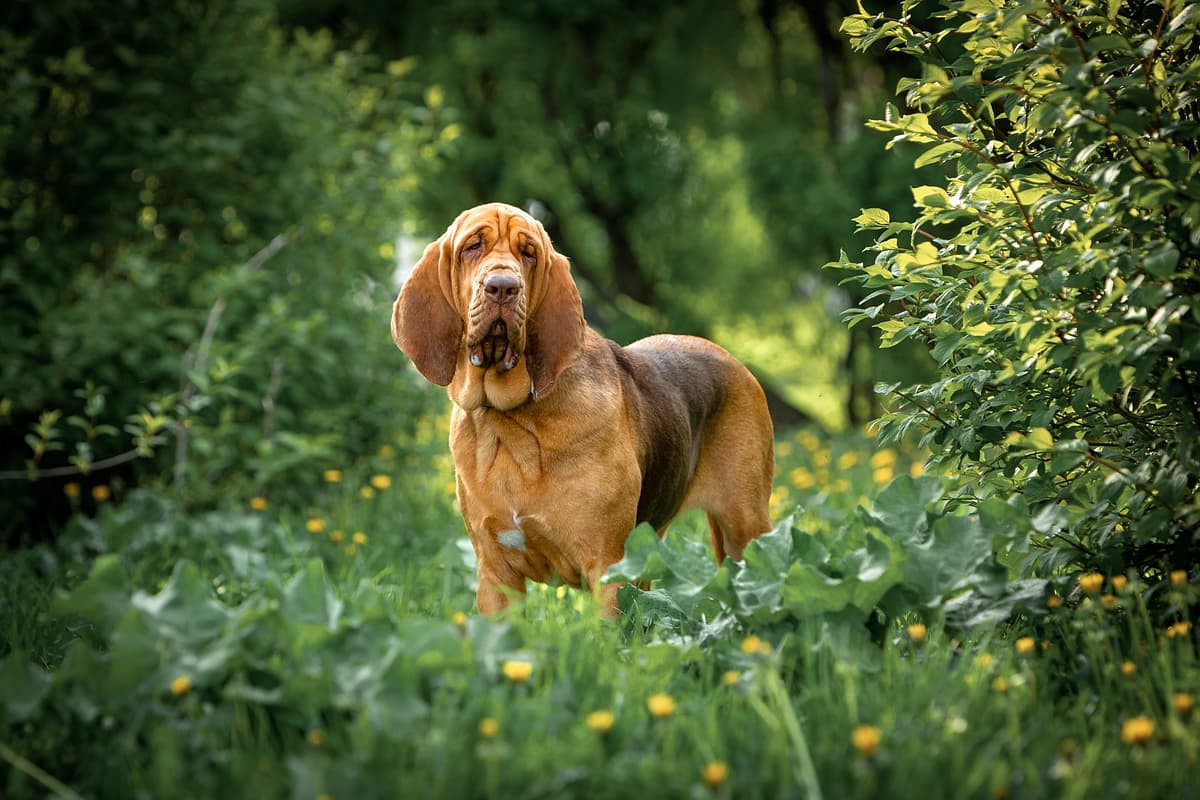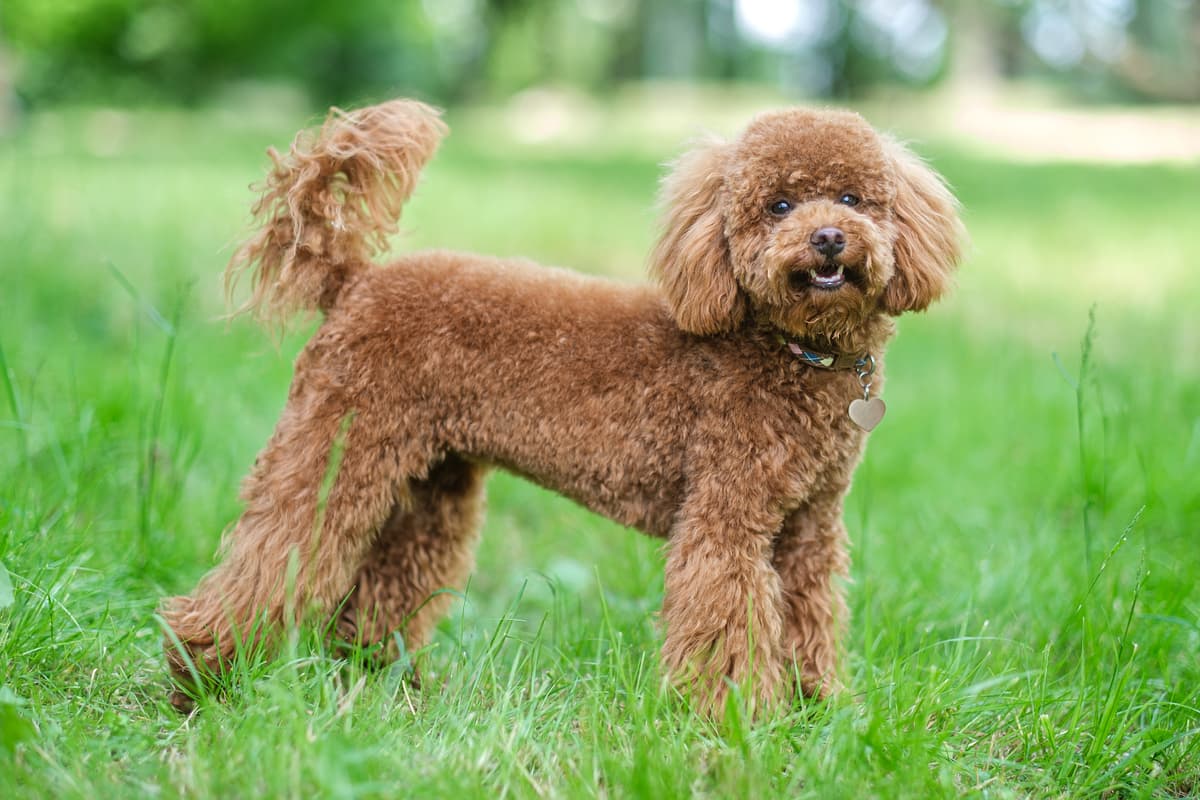Bloodhound vs Poodle
Discover the differences between Bloodhound and Poodle to make the best choice for your situation.
Try different breeds

Bloodhound
A gentle, affectionate companion with an unmatched sense of smell and determination. Loves adventure and thrives in active families who appreciate a loyal, sensitive dog.

Poodle
Elegant, intelligent, and highly trainable, this breed stands out for its lively spirit and loyal companionship. Their hypoallergenic coat and playful personality make them ideal family pets.
Quick comparison
Large
41–50 kg
Short, dense
10–12 years
36–45 kg
High energy
Medium
20–32 kg
Curly, dense
12–15 years
18–27 kg
High energy
Personality & behavior
Compare the personality traits and behavioral characteristics of both breeds.
Bloodhound
Gentle and sociable with people and dogs
Independent thinker, not always eager to please
Needs regular activity and outdoor exploration
Enjoys games but not highly boisterous
Struggles with change and new environments
Poodle
Warm and sociable with family and guests
Highly intelligent and quick to learn commands
Needs regular activity and enjoys exercise
Loves games and interactive playtime
Easily adjusts to new environments and routines
Care needs
Exercise, grooming, and daily care requirements
Bloodhound
Hip dysplasia, ear infections
Poodle
Hip dysplasia, Addison’s disease
Suitability
How well each breed fits different living situations and families
Bloodhound
Not ideal
Bloodhounds can be stubborn and require patient, consistent training from experienced handlers.
Poor fit
They are large, vocal, and need space, making small apartments challenging.
Good companion
Their stamina and curiosity suit active owners who enjoy long walks or hikes.
Gentle but strong
They are usually patient but can accidentally knock over small children due to size.
Generally friendly
Bloodhounds tend to get along with other pets if socialized early.
Prone to distress
They dislike being alone for long periods and may develop separation anxiety.
Poodle
Great choice
Intelligent and eager to please, Poodles are easy for beginners to train and manage.
Highly suitable
Poodles adapt well to apartment life if given daily exercise and mental stimulation.
Perfect fit
Their energy and love for activity make them great companions for active households.
Very friendly
Poodles are gentle and patient with children when socialized from a young age.
Gets along well
Poodles usually coexist peacefully with other pets, especially if socialized early.
Prone to anxiety
Poodles can develop separation anxiety if left alone for long periods regularly.
Breed strengths
What each breed excels at and their best qualities
Bloodhound
- Exceptional tracking ability
- Gentle and patient with children
- Highly intelligent scent hound
- Generally friendly with other dogs
- Loyal and devoted to family
Poodle
- Highly intelligent and easy to train
- Hypoallergenic coat reduces shedding
- Strong bond with family members
- Adaptable to various living environments
- Excellent performance in canine sports
Challenges & considerations
Potential challenges and considerations for each breed
Bloodhound
- Prone to stubbornness during training
- Requires extensive daily exercise
- Can be difficult to manage off-leash
- Tends to drool excessively
- Prone to ear infections due to long ears
Poodle
- Requires regular professional grooming
- Prone to separation anxiety if left alone
- Needs daily mental and physical stimulation
- Can be reserved with unfamiliar people
- Susceptible to certain genetic health issues
Ready to choose your perfect breed?
Learn more about each breed or compare other breeds to find the perfect match for your lifestyle.
Discover more helpful tools
Make use of our other free tools to get the most out of your pet experience
